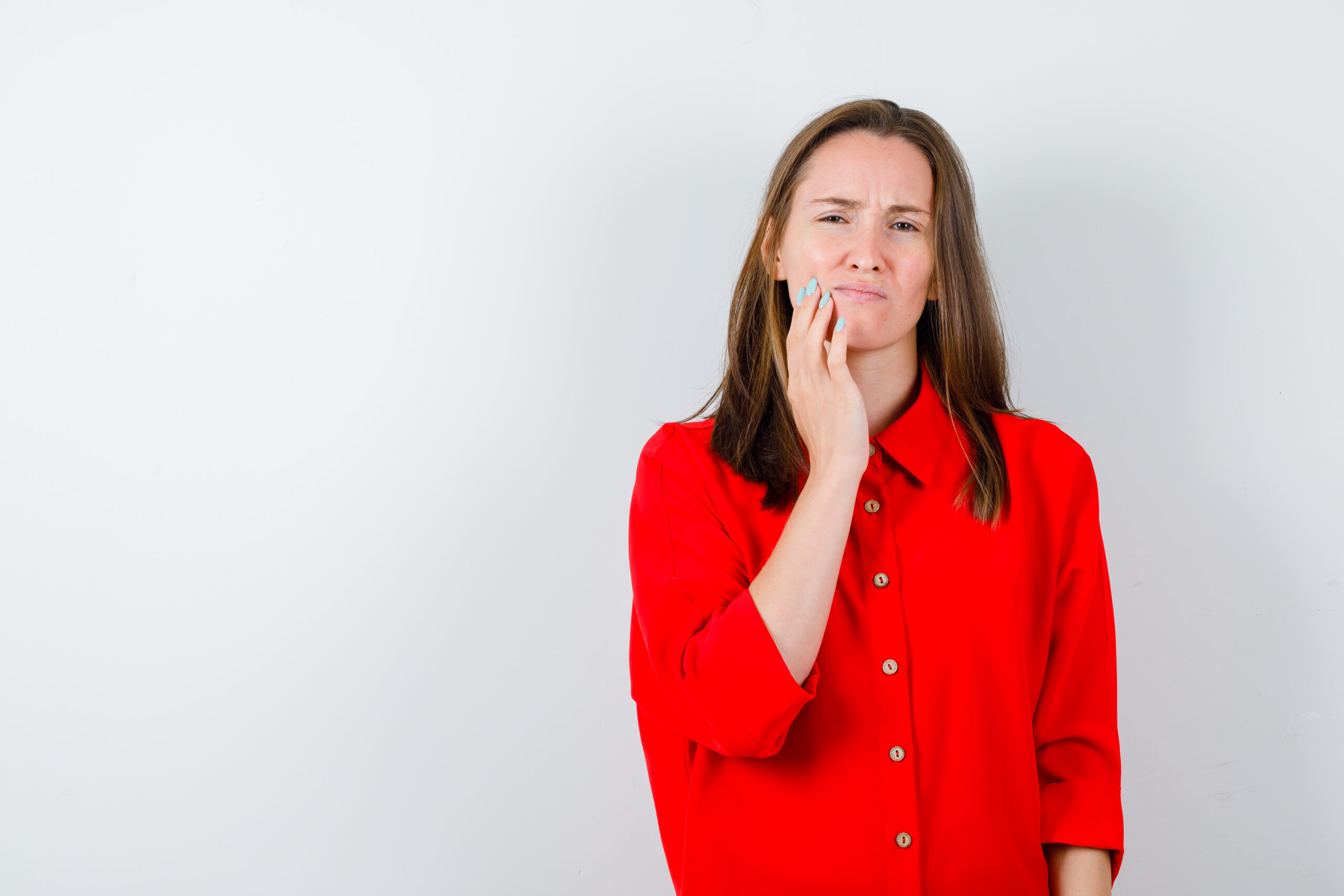Discover the link between menopause and gum disease
As women undergo menopause, they experience a myriad of physical changes that can significantly impact their overall health, including oral health. Surprisingly, many women are unaware of the connection between menopause and gum disease, despite studies indicating that nearly 87% of women acknowledge an increased risk of gum disease during this transitional phase. A recent survey revealed that 84% of women aged 50 and older are unaware of how hormonal shifts can lead to oral health challenges such as bleeding gums, dry mouth, and receding gumlines.
The decline in estrogen levels during menopause plays a crucial role in these changes, affecting the gums and oral tissues. This article explores the effects of menopause on gum disease, outlines how hormonal transitions can lead to symptoms like bleeding gums, and highlights why receding gums may become a pressing concern during this time. By understanding these connections, women can take proactive steps to safeguard their oral health as they navigate this significant life transition.
How Menopause and Gum disease are linked
Menopause and gum disease are connected because of the hormonal imbalances that occur while women go through menopause. Estrogen levels deteriorate considerably throughout this phase, also bringing in certain transformation in bodily systems including the gums. This drop in estrogen impacts the tissues in your mouth, leading to elevated gum sensitivity, inflammation, and even gum recession. For many ladies, comprehending the connection between menopause and gum disease can assist them in taking proactive steps to hold oral health.
Bleeding Gums during Menopause: Why It occurs
One of the most common symptoms of menopause and gum disease is when the gums start bleeding. For many females, bleeding gums during menopause is the primary sign of fundamental gum disease. Hormonal instabilities during menopause cause a condensed ability of gum tissue to sustain its usual strength and resilience. This frequently results in bleeding gums while brushing or flossing. If left unattended, bleeding gums in menopause can develop into more excessive gum disease, impacting the entire oral health.
Menopause and Receding Gums: A developing issue
Every other concern for females is menopause-associated receding gums. Menopause receding gums arise when the gums start to pull away from the teeth, exposing the teeth’s surface more This phenomenon is directly linked to the lessening of the estrogen levels, which can cause a lack of collagen in gum tissue. Receding gums during menopause not only disturb the appearance of your smile but increases the risk of cavities and sensitivity.
Menopause and Bleeding Gums: Is it a new challenge for you?
Menopause and bleeding gums might sound like an uncommon combination, however the hormonal shifts during menopause can deteriorate gum tissue, making it extra vulnerable to inflammation and bleeding. Menopause and bleeding gums should not be ignored, as consistent gum bleeding may be a symptom of emerging gum disease. Addressing menopause and bleeding gums at an early stage will be helpful from avoiding any further gum disease.
Understanding the Symptoms of Menopause Gum Disease
Identifying the symptoms of menopause-related gum disease is crucial for timely intervention and effective management. Research indicates that up to 50% of menopausal women experience oral health symptoms, including painful gums and tooth loss, making it essential to recognize the signs early. Symptoms of menopause gum disease may include:
- Swollen, Soft Gums: Hormonal changes can lead to inflammation in the gums, making them appear swollen and tender. Studies show that nearly 60% of women report experiencing changes in their gum health during menopause.
- Bleeding Gums: Women may notice bleeding gums while brushing or flossing, a common symptom that can indicate gingivitis or more severe periodontal disease. Approximately 28% of post-menopausal women are likely to suffer from gum disease, which can lead to increased bleeding.
- Receding Gums: Many women experience receding gums during menopause, leading to longer-looking teeth and increased sensitivity. Research indicates that one in three women over 50 notice their gumlines receding, exposing more of the tooth and its roots.
- Persistent Bad Breath: Chronic bad breath can occur despite proper oral hygiene practices due to bacterial imbalances in the mouth. A significant number of women report this symptom as a result of hormonal fluctuations affecting saliva production.
- Increased Sensitivity: Heightened sensitivity in teeth and gums is another common complaint. This sensitivity can be exacerbated by hormonal changes that affect the gums and overall oral health.
Each of these signs can worsen if left unattended, highlighting the importance of being vigilant about your oral health during menopause. With studies showing that 84% of women are unaware of the link between menopause and gum disease, it is vital to educate oneself on these symptoms and seek appropriate dental care when necessary. Regular dental check-ups and open communication with healthcare providers about menopausal changes can help mitigate these issues and maintain optimal oral health.
How to avoid Menopause and Gum disease?
Menopause and gum disease can be avoided if a dedicated oral care regime is followed. Right here are some steps to consider:
- Regular Dental Checkups
- Good Oral Hygiene Regime
- Stay Hydrated
- Balanced Diet
Treatment options for Menopause and Bleeding Gums
If menopause and bleeding gums have already commenced and is impacting your oral health, there are numerous treatment options that is available. Treating bleeding gums during menopause might also include:
Topical treatments
Application of topical medicines prescribed by a dentist can help you in reducing gum irritation and prevent bleeding.
Hormone substitute remedy (HRT)
For a few females, HRT helps in stabilizing the hormonal levels, decreasing the effect of menopause gum disease along with the other common menopausal symptoms.
Professional Dental Cleanings
Frequently cleanings by a dental professional can eliminate plaque buildup and protect you from any kind of gum disease.
Menopause and bleeding gums need to be supervised cautiously. Taking advises of your dentist in case you notice regular bleeding or soreness can prevent complications from deteriorating.
Can Menopause Receding Gums Be Reversed?
Menopause receding gums can be hard to reverse, however there are few reliable ways to slow their development. A good oral care regime, frequent dental visits, and adequate hydration are vital in dealing with menopause receding gums. Dentists may also recommend precise gum treatments or even grafting procedures for more serious cases. Even though menopause receding gums won’t be completely reversible, diligent care can drastically enhance your gum and oral health and slow down further decline.
Home remedies for Menopause and Bleeding Gums
Further to medical remedies, numerous domestic treatments can help manage menopause and bleeding gums. Here are a few natural processes:
Salt Water Rinse:
Rinsing with lukewarm salt water can lessen gum infection and save you from infection, a common problem during menopause gum disorder.
Turmeric Paste:
Application of turmeric paste to the gums will give you anti-inflammatory advantages that may ease bleeding gums menopause.
Oil Pulling:
Swishing coconut oil within the mouth for 10-15 minutes helps lessen bacteria which could result in menopause and gum disease.
These treatments offer natural relief from menopause gum disease symptoms and can complement an expert oral care regime.
How Menopause Affects Gum Disease Progression?
Menopause impacts gum disease development by making the gum tissues weak and growing exposure to bacterial infections. When estrogen levels start to decline, gums get more vulnerable towards infection, and eventually leading towards bleeding and menopause receding gums. This deteriorated gum tissue offers an environment in which plaque and bacteria can thrive, accelerating gum disease development.
When to visit a Dentist for Menopause and Gum disease
There are many women who have experienced mild symptoms of menopause gum disease, and other serious symptoms. If you have chronic bleeding gums menopause or notice gum recession, advice from a professional is essential. Dentists can provide remedies and supervision to administer menopause and gum disease effectively, supporting you to evade further complications.
Can Hormone Replacement Therapy help with Menopause and Gum disease?
Hormone replacement therapy (HRT) is one of the most common remedies for dealing with menopause signs and it also helps in dealing with menopause gum disease. By soothing the hormonal levels, HRT provides immense support to maintain gum health, reducing infection and bleeding gums during menopause. However, it’s important to seek advice from both your physician and dentist to understand whether HRT is a suitable alternative for you or not.
Menopause and gum disease is a mixed result of hormonal fluctuations that weaken gum tissue. By comprehending the link between menopause, bleeding gums, and receding gums, women can take active steps to keep a healthy smile. Constant oral hygiene, frequent dental visits, and way of lifestyle changes could bring a sizable difference. Always remember, menopause and gum disease should not compromise your oral health—through prioritizing the steps of prevention and possible treatments, you can safeguard your beautiful smile through all the stages of life. Considering home remedies and other medicinal treatments will bring a change in your oral health as well. You also must consider a healthy oral regime so that you can avoid unnecessary gum bleeding, bad breath and even weekend gum tissue.

Prativa Chatterjee






